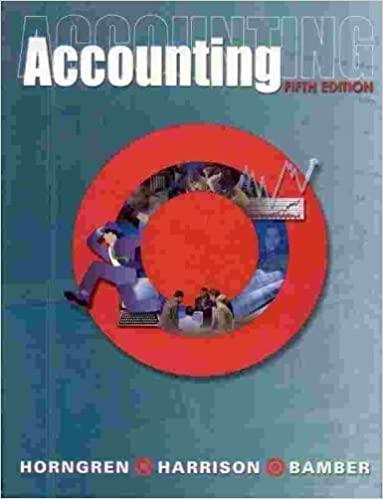
 Please answer this asap, thanks.
Please answer this asap, thanks.
Page view A Read aloud Draw A critical aspect of the design, maintenance, and improvement of chemical processes and their associated units/instrumentation are technical drawings and documents. These documents may be used by construction teams to build and repair pipelines and equipment, or by engineering teams to identify and remediate safety and/or quality issues within the process. Furthermore, for scale-up and expansion of chemical processing, these diagrams and documents form a set of "instructions for other facilities to use to replicate the process at a new site. In this Design Project, you will be preparing a Bill of Lading (BOL) and a Piping & Instrumentation Diagram (P&ID) for a fire suppression system. at Process Parameters The fire suppression system must meet the following requirements: . . . Two 100-long aisles of process equipment, 20 apart, each covered by at least 2 fire suppression lines of steel piping for sprinkler valves s 1" diameter Sprinkler valves spaced every 10' on each fire suppression line A main supply line running perpendicular to the two aisles, and extending 50 beyond them in each direction, of 4" steel piping Fire suppression lines must either: loop back to the main supply line, or have a second main (drain) line placed at the other end of the aisles for the sprinkler valve lines to drain to Shutoff valves (1 main, 1 backup) on every line 1 flow control valve on every line Pressure and temperature indicators every 50' on each line 1 main pump on each main line, 1 "top-up" pump on each fire suppression line . E Page view A Read aloud V Draw Highlight Erase Bill of Lading (BOL) When building plants or plumbing systems, a Bill of Lading (BOL) is a list of all pipe, fittings, and instruments required to construct the system. This BOL must contain the following information: Pipes . . Material Nominal diameter (size, usually in inches) Total length (usually in feet) Fittings/Valves/Instruments . Name Material (if uniform, e.g. a tee; not necessary for pumps, gauges, etc.) Connection size(s) (in inches) Total number of each . . Piping & Instrumentation Diagram (P&ID) A P&ID shows: . Pipes Pipe sizes Pipe materials Direction of flow (arrowhead) New arrowhead when material changes Instrumentation (coded) Valves (type, size, material) Pumps (type) Units (coded) Specific type, where applicable . Specific size, where applicable Control devices Sensors (as "lollipops") Control strategy . . . Note that a P&ID does not have to look physically like the layout of the actual system; it just has to present the various pipes and instruments in the correct order. Page view A Read aloud Draw A critical aspect of the design, maintenance, and improvement of chemical processes and their associated units/instrumentation are technical drawings and documents. These documents may be used by construction teams to build and repair pipelines and equipment, or by engineering teams to identify and remediate safety and/or quality issues within the process. Furthermore, for scale-up and expansion of chemical processing, these diagrams and documents form a set of "instructions for other facilities to use to replicate the process at a new site. In this Design Project, you will be preparing a Bill of Lading (BOL) and a Piping & Instrumentation Diagram (P&ID) for a fire suppression system. at Process Parameters The fire suppression system must meet the following requirements: . . . Two 100-long aisles of process equipment, 20 apart, each covered by at least 2 fire suppression lines of steel piping for sprinkler valves s 1" diameter Sprinkler valves spaced every 10' on each fire suppression line A main supply line running perpendicular to the two aisles, and extending 50 beyond them in each direction, of 4" steel piping Fire suppression lines must either: loop back to the main supply line, or have a second main (drain) line placed at the other end of the aisles for the sprinkler valve lines to drain to Shutoff valves (1 main, 1 backup) on every line 1 flow control valve on every line Pressure and temperature indicators every 50' on each line 1 main pump on each main line, 1 "top-up" pump on each fire suppression line . E Page view A Read aloud V Draw Highlight Erase Bill of Lading (BOL) When building plants or plumbing systems, a Bill of Lading (BOL) is a list of all pipe, fittings, and instruments required to construct the system. This BOL must contain the following information: Pipes . . Material Nominal diameter (size, usually in inches) Total length (usually in feet) Fittings/Valves/Instruments . Name Material (if uniform, e.g. a tee; not necessary for pumps, gauges, etc.) Connection size(s) (in inches) Total number of each . . Piping & Instrumentation Diagram (P&ID) A P&ID shows: . Pipes Pipe sizes Pipe materials Direction of flow (arrowhead) New arrowhead when material changes Instrumentation (coded) Valves (type, size, material) Pumps (type) Units (coded) Specific type, where applicable . Specific size, where applicable Control devices Sensors (as "lollipops") Control strategy . . . Note that a P&ID does not have to look physically like the layout of the actual system; it just has to present the various pipes and instruments in the correct order

 Please answer this asap, thanks.
Please answer this asap, thanks.





